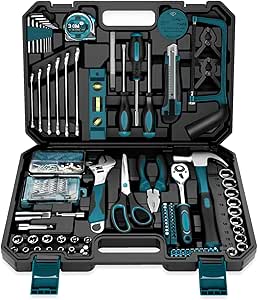How to Choose the Right Hardware Tools for Your Home Projects

From fixing a leaky faucet to building a bookshelf, the right hardware tools make all the difference. This guide helps you select tools that match your project needs, ensuring efficiency and quality results.
- Understanding Project Needs: Start by assessing the scope of your project—woodworking, plumbing, or electrical work requires specific tools. For example, furniture assembly needs screwdrivers and allen keys, while plumbing demands adjustable wrenches. Create a checklist of tasks to identify essential tools and avoid overspending.
- Essential Hand Tools: A hammer with a comfortable grip is crucial for driving nails or light demolition. Screwdriver sets with multiple bit sizes (Phillips, flathead) cover most fastening needs. Adjustable wrenches and pliers (needle-nose and slip-joint) handle various gripping and turning tasks.
- Specialty Tools: Tools like spirit levels ensure straight installations, while tape measures provide accurate dimensions. Stud finders locate wall studs for secure mounting, and utility knives are perfect for precise cuts in drywall or packaging.
- Material and Build Quality: Opt for tools with forged steel heads or chrome-vanadium coatings for durability. Avoid plastic handles for heavy-duty tasks, as they may crack under pressure. Check for rust-resistant finishes for longevity.
- Ergonomic Design: Tools with cushioned grips reduce hand fatigue during long projects. Lightweight designs improve maneuverability, especially for overhead tasks like installing shelves.
Conclusion: Choosing the right hardware tools saves time and boosts project quality. Visit our website to find durable, user-friendly tools for your next project.

